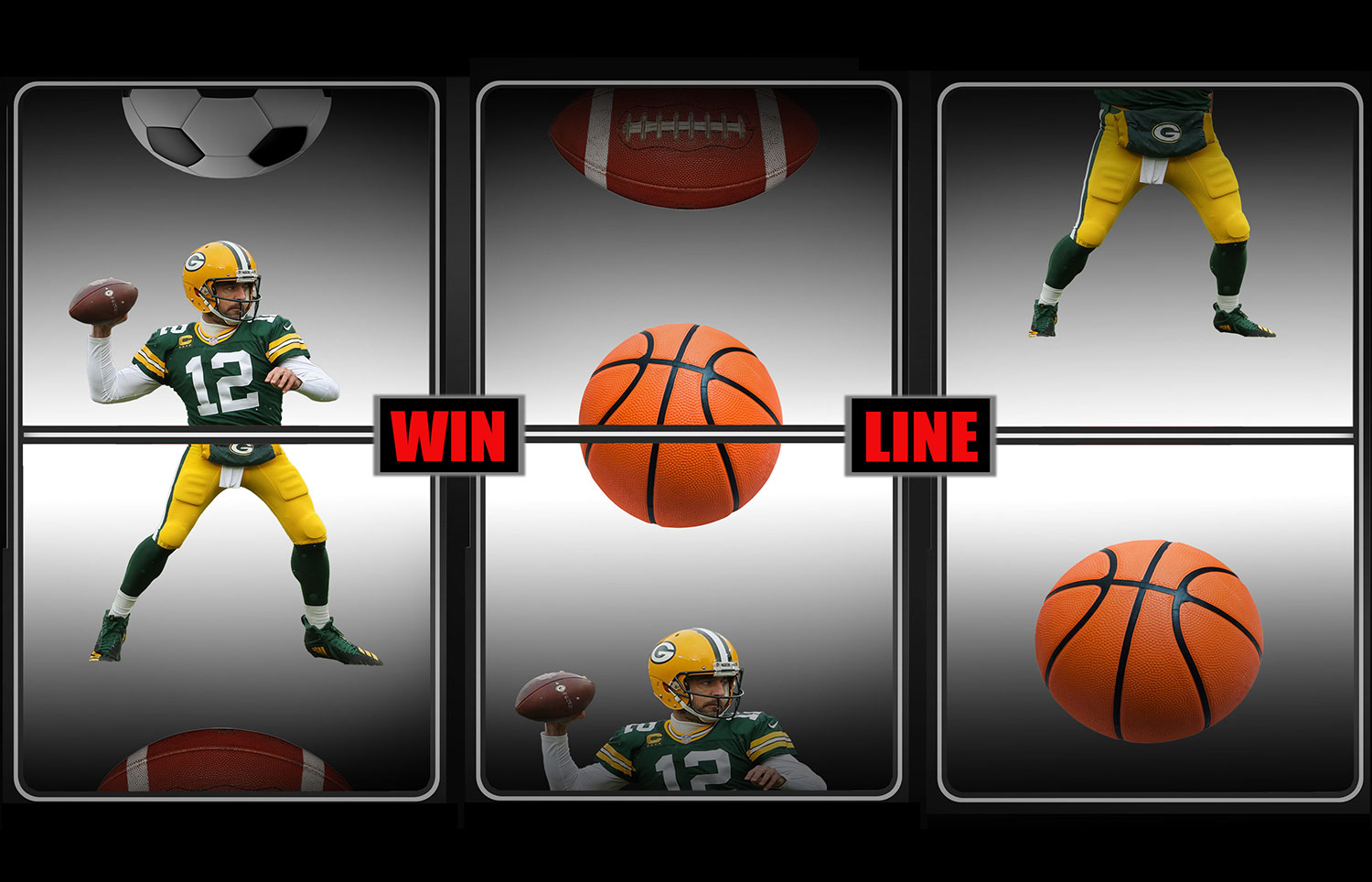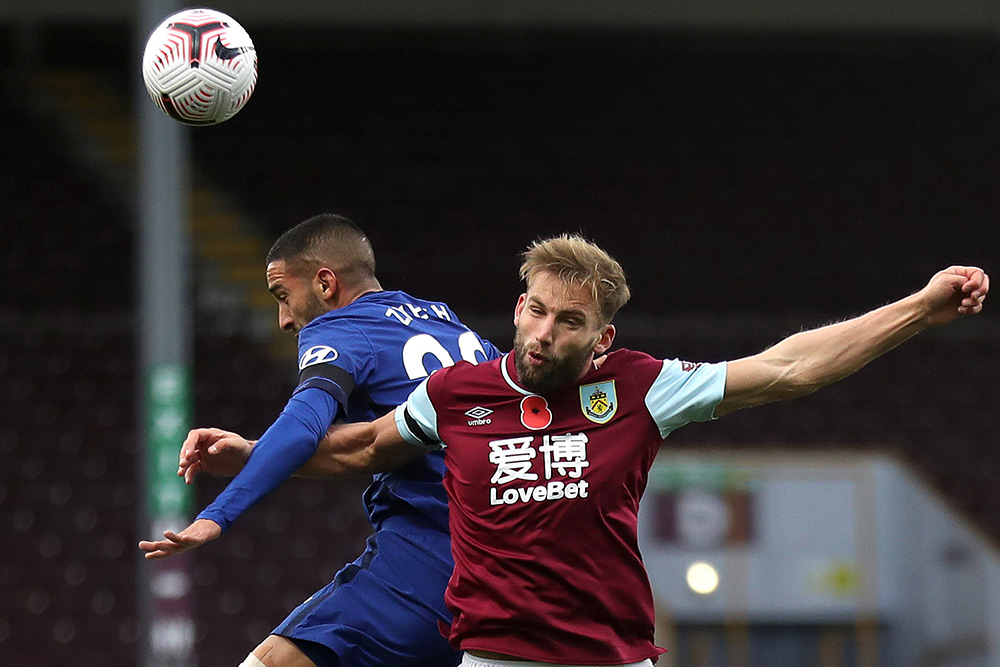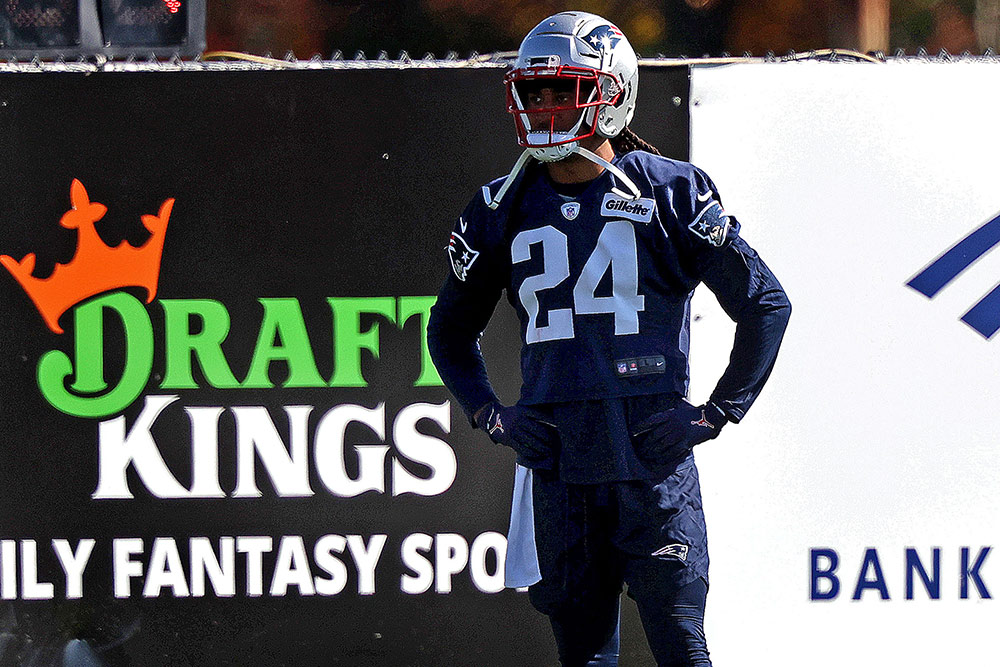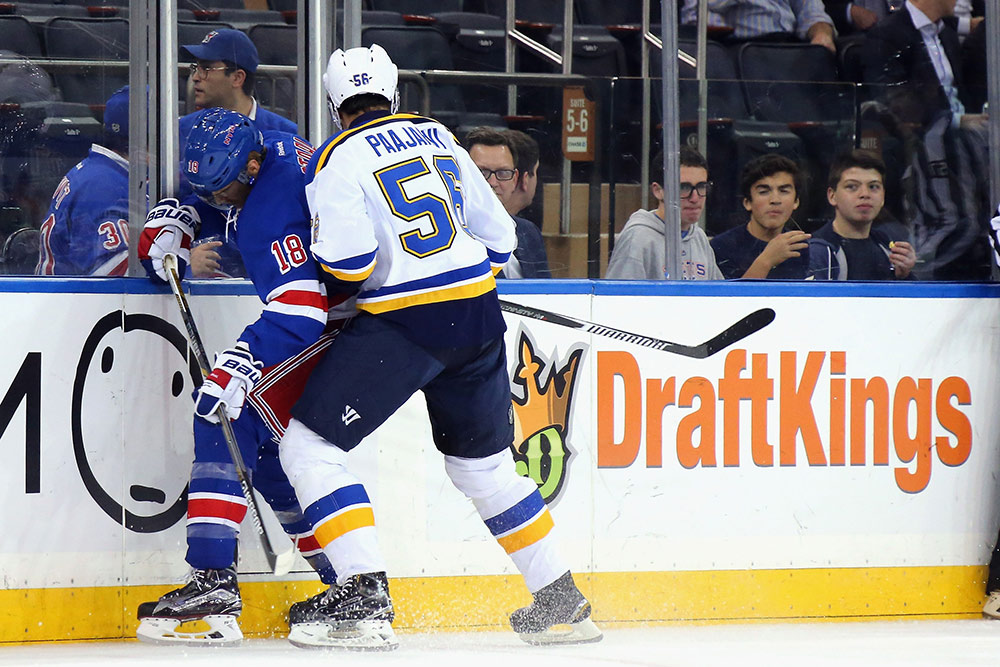
烦透了各类在线广告?没事,不仅在中国,这在美国也是很普遍的现象,尤其以在线体育博彩广告为盛。在观看橄榄球赛或浏览推特之前,美国的网民们不得不先应付扑面而来的在线体育博彩广告。
诸如“下注20美元,就有机会在阿隆·罗杰斯传球过码线之后赢125美元”或“首次下注最高可享500美元风险免除”这类广告可谓是如影随形,而体育博彩公司则在继续大肆宣传看似天上掉馅饼的买卖,并希望借此揽获那些能够经常下注、从长远来看多半会输钱的客户。
公众对新冠疫情感到越来越厌烦,这便让博彩初创企业获得了理想的目标客户群体。而且各州对博彩行业的监管有所放松,于是这类广告呈现出了爆炸式增长。
专注于成瘾治疗的心理学家艾瑞克·菲尔兹说:“疫情期间,精神健康问题和成瘾问题确实出现了激增。在这段时间,那些存在成瘾问题或精神问题的人士最容易被攻破,而对于那些正常人士来说,他们如今也可能会出现上述问题。长时间待在家中只会让人更倾向于寻找权宜之计,并形成及时行乐的心态。”
到2025年,美国合法体育博彩市场预计将带来70亿美元至80亿美元的年收入,其2019年营收刚刚突破了9亿美元大关,而且不到半数州已经实现了体育博彩的合法化。
研究公司Eilers & Krejcik Gaming的克里斯·格罗夫称,体育博彩公司通常会花费数百美元的成本来招揽客户,并寄希望于每位参与博彩的客户在其一生当中可以为公司创造超过1000美元的收益。
美国博彩协会称,当前,25个州和华盛顿特区已经通过了体育博彩合法化的法案。路易斯安那州、马里兰州和南达科他州将在本次选举周期加入这一阵营,上述州已经通过了选民公投。
少数顶级参与者,例如DraftKings、FanDuel以及名气更大的赌场博彩业运营商William Hill和BetMGM,在这一领域处于大幅领先地位,但这一现象并未妨碍其他参与者竞相加入这一已然过于拥挤的行列——新泽西州当前有超过15家运营商角逐这一领域。

博彩行业情报公司Vixio GamblingCompliance的数据负责人丹尼尔·斯通说:“就免费押注和促销频率而言,大家几乎都亮出了底牌。即便DraftKings希望减小推广力度并略微向保守策略转变,但在对手面前它们依然是身不由己。如果Barstook来到了宾夕法尼亚州,火力全开,大搞免费押注,疯狂撒钱,有鉴于已经在近期拉开帷幕的美国职业橄榄球赛季,FanDuel和DraftKings开源节流、小心谨慎的想法难以实现。”
斯通尤其提到了DraftKings和FanDuel,因为这两家公司很长时间以来一直稳坐行业的头两把交椅。远在美国最高法院于2018年5月否决体育博彩的联邦禁令之前,DraftKings和FanDuel便因为其Daily Fantasy Sports产品而成为了行业的领军者。就在各州的移动体育博彩合法化之后,DraftKings和FanDuel已经接触到了其他竞争对手不曾接触的用户群。

斯通说:“DraftKings与FanDuel完全是依靠这一现成的海量DFS用户群体才树立了在行业中的领导地位,这些成天坐着的用户是交叉销售的理想对象。这两家公司一直在通过这些用户赚钱,并以远低于美高梅(MGM)或凯撒(Caesars)的客户获取率,打造了一个庞大的体育博彩业务,而美高梅和凯撒则是从零开始,尝试在印第安纳州或伊利诺伊州向其数据库中岁数较大的老虎机玩家进行交叉兜售,但此举可能并不完全适用于体育博彩。”
然而,在一开始就坐拥庞大的活跃用户群并不一定就意味着DraftKings或FanDuel能够从中盈利。
DraftKings在2018年和2019年均出现了亏损,而疫情对体育赛季的干扰更是雪上加霜,公司在2020年前6个月未能再次实现盈利。尽管FanDuel在2019年斩获了45%的同比营收增长,但在上个财年亦出现了亏损。随着更多的州不断宣布体育博彩的合法化,营收将继续保持增长,但博彩运营商依然得耗费财力,在这个利润已然微薄的行业,通过大量的营销和推广活动,以及投资产品改善和雇员增长,来抵御新竞争对手。
FanDuel的首席营销官迈克·拉芬斯伯格说:“如今,我们基本上进入了增长模式。我们正投资在新州开展业务,其目的是获取大量的客户,并让他们尝试我们的产品。因此,最终这意味着在这些早期阶段,从营收角度来看,我们处于入不敷出的状态。”
在FanDuel、 DraftKings、 BetMGM、 William Hill以及BetRivers这样的老牌公司忙着争抢市场份额时,新加入的企业让竞争进一步白热化。
Penn National Gaming旗下的PointsBet和Barstool Sports恰好便是近期众多打算进军这一领域的两位新手,这两家企业在进军其他州时也带来了其一系列促销活动。
斯通对Barstool尤为关注。他说:“其观众是体育博彩交叉销售的完美对象。我知道其中有的观众不到21岁,但这些都是痴迷于体育的年轻人士,而且他们都已经参与过体育博彩。他们之所以投资Barstool品牌,是因为看到了该品牌在其他领域获得的成功。他们认为自己拥有一大批现成的观众群,而且可以高效地让其参与体育博彩。”

移动博彩业经济学
美国博彩协会与斯通均表示,除了通过合法博彩公司担保的所有资金,运营商仅能拿到其中的5%至7%作为营收,这还没有计算支付的监管费用和税费,后者在某些州可能高达营收的50%。如果再加上雇员薪资、运营费用和营销费用——Vixio公司称,仅这些费用就可能会占到总营收的50%以上,所以在线体育博彩业在当前来看并不是一个赚钱的行业。
事实上,DraftKings最近称公司第三季度营收达到了1.33亿美元,这是非常好的成绩,较去年同期增长了98%。然而,公司在芝加哥小熊队(Chicago Cubs)、美国职业棒球大联盟(MLB)、ESPN、纽约巨人队(New York Giants)和迈克尔·乔丹上的花费也让其该季度的销售和营销费用增至2.03亿美元。虽然这类开支让DraftKings的用户群(按照月度独立付款人计算)在第三季度增长了64%,但这也意味着公司的盈利可能依然遥遥无期。
斯通说:“现在,感觉就像公司在不计成本地扩张,不计成本地抢夺市场份额。人们并不在意输钱,DraftKings只不过是在丢失了财富之后才获得令人感动的估值,它看似并非取决于理性的成本控制,这些企业希望在四至五年内跻身赢家之列。可能到那个时候,这些公司的专注点就会转移至成本控制和盈利。”
如今,人们的关注重点依然在于成为其中的“赢家”之一。如果斯通是对的,而且美国体育博彩市场发展成了英国这个老牌博彩国家的样子,那么最后市场中可能仅有5到6家博彩运营商,如果是这样的话,它们将占到10%的市场份额。由于目前市场上的运营商数量远超6家,这意味着海量的运营商都将出局。

因此,竞争迫使各大公司推出了一些颇有创造力的营销手段。
例如,FanDuel推出了一些此前从未听说过的概念。例如可以退款的“同种游戏连赢”(Same Game Parlays)以及众筹体育博彩。可能你对这两种方案并不是很熟悉,但它们都能够几乎完全规避风险,并保持同样的回报率(或赢率)。
拉芬斯伯格说:“我们将投资在其他州开展业务,以便让更多的客户尝试我们的产品。最终,我们将慷慨地对待我们的客户,并让体育博彩充满乐趣。我们认为从长远来看,而且从迄今为止的业绩以及市场份额报告中看到,这种慷慨可以换来客户的留存和忠诚度。”
充满危险的未来?
这么做当然能够带来回报,斯通称在某些情况下客户一生平均可以带来高达2000美元的价值。尽管丰厚的回报对博彩运营商来说有着显著的吸引力(亦是当前促销氛围的主要推手),但也有可能为行业及其客户带来麻烦。
博彩问题国家会议(National Conference on Problem Gambling)的执行总监凯斯·怀特称,只要看看欧洲的情况就够了。
远在美国之前,在线体育博彩便已经在大多数欧洲国家合法化,并于数年前在英国、西班牙、法国等国家呈现出井喷趋势。在看到了数百亿美元的市场规模之后,体育博彩运营商掀起了激烈的市场份额争夺战。
很快,这类广告铺天盖地而来,包括足球俱乐部的运动衫、时常贯穿整个电视的直播、体育馆、流媒体平台、横跨社交媒体等等。从长远来看,那些愿意花费数亿美元来招揽更多赌民的体育博彩运营商,最终将成为输家。
直接支付营销费用,赢取市场份额,然后收获回报。就这么简单,不是吗?
其实并不是这样。博彩行业的兴起很快受到了公众、媒体以及政府的抨击,因为难处理的赌博习惯变得越来越常见。Fields称,正是这些广告的连番轰炸导致了人们的冲动行为。
菲尔兹说:“第一次下注时,这些公司都会让你赢,因为这会让你感到自己很在行,然后这种间歇性的强化模式便开始介入,这便是最强有力的行为强化。如果只输不赢的话,人们很容易放弃。如果一直赢,然后突然开始一直输,人们也很容易放弃。然而研究表明,如果偶尔赢一次,那么打破行为模式的难度无疑是最大的。”
在欧洲,政府的确很快出台了政策,限制博彩公司投放广告的时间和地点,同时要求运营商投资发布预防赌博致瘾的信息。
怀特警告说,数年后美国也可能会发生一模一样的情况。
他认为州政府和运营商应该着眼长远,培养客户的可持续性。换句话说,他们应该减少广告的频率和密度,将更多的钱投入成瘾预防举措(像对待酗酒那样对待赌博),限制赌博金额以及交易次数,并借此确保客户不会因此而倾家荡产。然而,运营商是否会采纳这条建议或谨慎前行,却依然是个未知数。
怀特说:“很明显,一些短视的运营商可能会对此置之不理,但一些着眼于长远的运营商深知,能够留住客户才是最好的,因为这样才可以拥有更好的生命周期价值,而且揽客的成本真的很高。因此很明显,花一点时间提升这些客户的可持续性不仅仅完全符合其道德利益,也是最有利于其经济利益的做法。”(财富中文网)
译者:冯丰
审校:夏林
烦透了各类在线广告?没事,不仅在中国,这在美国也是很普遍的现象,尤其以在线体育博彩广告为盛。在观看橄榄球赛或浏览推特之前,美国的网民们不得不先应付扑面而来的在线体育博彩广告。
诸如“下注20美元,就有机会在阿隆·罗杰斯传球过码线之后赢125美元”或“首次下注最高可享500美元风险免除”这类广告可谓是如影随形,而体育博彩公司则在继续大肆宣传看似天上掉馅饼的买卖,并希望借此揽获那些能够经常下注、从长远来看多半会输钱的客户。
公众对新冠疫情感到越来越厌烦,这便让博彩初创企业获得了理想的目标客户群体。而且各州对博彩行业的监管有所放松,于是这类广告呈现出了爆炸式增长。
专注于成瘾治疗的心理学家艾瑞克·菲尔兹说:“疫情期间,精神健康问题和成瘾问题确实出现了激增。在这段时间,那些存在成瘾问题或精神问题的人士最容易被攻破,而对于那些正常人士来说,他们如今也可能会出现上述问题。长时间待在家中只会让人更倾向于寻找权宜之计,并形成及时行乐的心态。”
到2025年,美国合法体育博彩市场预计将带来70亿美元至80亿美元的年收入,其2019年营收刚刚突破了9亿美元大关,而且不到半数州已经实现了体育博彩的合法化。
研究公司Eilers & Krejcik Gaming的克里斯·格罗夫称,体育博彩公司通常会花费数百美元的成本来招揽客户,并寄希望于每位参与博彩的客户在其一生当中可以为公司创造超过1000美元的收益。
美国博彩协会称,当前,25个州和华盛顿特区已经通过了体育博彩合法化的法案。路易斯安那州、马里兰州和南达科他州将在本次选举周期加入这一阵营,上述州已经通过了选民公投。
少数顶级参与者,例如DraftKings、FanDuel以及名气更大的赌场博彩业运营商William Hill和BetMGM,在这一领域处于大幅领先地位,但这一现象并未妨碍其他参与者竞相加入这一已然过于拥挤的行列——新泽西州当前有超过15家运营商角逐这一领域。
博彩行业情报公司Vixio GamblingCompliance的数据负责人丹尼尔·斯通说:“就免费押注和促销频率而言,大家几乎都亮出了底牌。即便DraftKings希望减小推广力度并略微向保守策略转变,但在对手面前它们依然是身不由己。如果Barstook来到了宾夕法尼亚州,火力全开,大搞免费押注,疯狂撒钱,有鉴于已经在近期拉开帷幕的美国职业橄榄球赛季,FanDuel和DraftKings开源节流、小心谨慎的想法难以实现。”
斯通尤其提到了DraftKings和FanDuel,因为这两家公司很长时间以来一直稳坐行业的头两把交椅。远在美国最高法院于2018年5月否决体育博彩的联邦禁令之前,DraftKings和FanDuel便因为其Daily Fantasy Sports产品而成为了行业的领军者。就在各州的移动体育博彩合法化之后,DraftKings和FanDuel已经接触到了其他竞争对手不曾接触的用户群。
斯通说:“DraftKings与FanDuel完全是依靠这一现成的海量DFS用户群体才树立了在行业中的领导地位,这些成天坐着的用户是交叉销售的理想对象。这两家公司一直在通过这些用户赚钱,并以远低于美高梅(MGM)或凯撒(Caesars)的客户获取率,打造了一个庞大的体育博彩业务,而美高梅和凯撒则是从零开始,尝试在印第安纳州或伊利诺伊州向其数据库中岁数较大的老虎机玩家进行交叉兜售,但此举可能并不完全适用于体育博彩。”
然而,在一开始就坐拥庞大的活跃用户群并不一定就意味着DraftKings或FanDuel能够从中盈利。
DraftKings在2018年和2019年均出现了亏损,而疫情对体育赛季的干扰更是雪上加霜,公司在2020年前6个月未能再次实现盈利。尽管FanDuel在2019年斩获了45%的同比营收增长,但在上个财年亦出现了亏损。随着更多的州不断宣布体育博彩的合法化,营收将继续保持增长,但博彩运营商依然得耗费财力,在这个利润已然微薄的行业,通过大量的营销和推广活动,以及投资产品改善和雇员增长,来抵御新竞争对手。
FanDuel的首席营销官迈克·拉芬斯伯格说:“如今,我们基本上进入了增长模式。我们正投资在新州开展业务,其目的是获取大量的客户,并让他们尝试我们的产品。因此,最终这意味着在这些早期阶段,从营收角度来看,我们处于入不敷出的状态。”
在FanDuel、 DraftKings、 BetMGM、 William Hill以及BetRivers这样的老牌公司忙着争抢市场份额时,新加入的企业让竞争进一步白热化。
Penn National Gaming旗下的PointsBet和Barstool Sports恰好便是近期众多打算进军这一领域的两位新手,这两家企业在进军其他州时也带来了其一系列促销活动。
斯通对Barstool尤为关注。他说:“其观众是体育博彩交叉销售的完美对象。我知道其中有的观众不到21岁,但这些都是痴迷于体育的年轻人士,而且他们都已经参与过体育博彩。他们之所以投资Barstool品牌,是因为看到了该品牌在其他领域获得的成功。他们认为自己拥有一大批现成的观众群,而且可以高效地让其参与体育博彩。”
移动博彩业经济学
美国博彩协会与斯通均表示,除了通过合法博彩公司担保的所有资金,运营商仅能拿到其中的5%至7%作为营收,这还没有计算支付的监管费用和税费,后者在某些州可能高达营收的50%。如果再加上雇员薪资、运营费用和营销费用——Vixio称,仅这些费用就可能会占到总营收的50%以上,所以在线体育博彩业在当前来看并不是一个赚钱的行业。
事实上,DraftKings最近称公司第三季度营收达到了1.33亿美元,这是非常好的成绩,较去年同期增长了98%。然而,公司在芝加哥小熊队(Chicago Cubs)、美国职业棒球大联盟(MLB)、ESPN、纽约巨人队(New York Giants)和迈克尔·乔丹上的花费也让其该季度的销售和营销费用增至2.03亿美元。虽然这类开支让DraftKings的用户群(按照月度独立付款人计算)在第三季度增长了64%,但这也意味着公司的盈利可能依然遥遥无期。
斯通说:“现在,感觉就像公司在不计成本地扩张,不计成本地抢夺市场份额。人们并不在意输钱,DraftKings只不过是在丢失了财富之后才获得令人感动的估值,它看似并非取决于理性的成本控制,这些企业希望在四至五年内跻身赢家之列。可能到那个时候,这些公司的专注点就会转移至成本控制和盈利。”
如今,人们的关注重点依然在于成为其中的“赢家”之一。如果斯通是对的,而且美国体育博彩市场发展成了英国这个老牌博彩国家的样子,那么最后市场中可能仅有5到6家博彩运营商,如果是这样的话,它们将占到10%的市场份额。由于目前市场上的运营商数量远超6家,这意味着海量的运营商都将出局。
因此,竞争迫使各大公司推出了一些颇有创造力的营销手段。
例如,FanDuel推出了一些此前从未听说过的概念。例如可以退款的“同种游戏连赢”(Same Game Parlays)以及众筹体育博彩。可能你对这两种方案并不是很熟悉,但它们都能够几乎完全规避风险,并保持同样的回报率(或赢率)。
拉芬斯伯格说:“我们将投资在其他州开展业务,以便让更多的客户尝试我们的产品。最终,我们将慷慨地对待我们的客户,并让体育博彩充满乐趣。我们认为从长远来看,而且从迄今为止的业绩以及市场份额报告中看到,这种慷慨可以换来客户的留存和忠诚度。”
充满危险的未来?
这么做当然能够带来回报,斯通称在某些情况下客户一生平均可以带来高达2000美元的价值。尽管丰厚的回报对博彩运营商来说有着显著的吸引力(亦是当前促销氛围的主要推手),但也有可能为行业及其客户带来麻烦。
博彩问题国家会议(National Conference on Problem Gambling)的执行总监凯斯·怀特称,只要看看欧洲的情况就够了。
远在美国之前,在线体育博彩便已经在大多数欧洲国家合法化,并于数年前在英国、西班牙、法国等国家呈现出井喷趋势。在看到了数百亿美元的市场规模之后,体育博彩运营商掀起了激烈的市场份额争夺战。
很快,这类广告铺天盖地而来,包括足球俱乐部的运动衫、时常贯穿整个电视的直播、体育馆、流媒体平台、横跨社交媒体等等。从长远来看,那些愿意花费数亿美元来招揽更多赌民的体育博彩运营商,最终将成为输家。
直接支付营销费用,赢取市场份额,然后收获回报。就这么简单,不是吗?
其实并不是这样。博彩行业的兴起很快受到了公众、媒体以及政府的抨击,因为难处理的赌博习惯变得越来越常见。菲尔兹称,正是这些广告的连番轰炸导致了人们的冲动行为。
菲尔兹说:“第一次下注时,这些公司都会让你赢,因为这会让你感到自己很在行,然后这种间歇性的强化模式便开始介入,这便是最强有力的行为强化。如果只输不赢的话,人们很容易放弃。如果一直赢,然后突然开始一直输,人们也很容易放弃。然而研究表明,如果偶尔赢一次,那么打破行为模式的难度无疑是最大的。”
在欧洲,政府的确很快出台了政策,限制博彩公司投放广告的时间和地点,同时要求运营商投资发布预防赌博致瘾的信息。
怀特警告说,数年后美国也可能会发生一模一样的情况。
他认为州政府和运营商应该着眼长远,培养客户的可持续性。换句话说,他们应该减少广告的频率和密度,将更多的钱投入成瘾预防举措(像对待酗酒那样对待赌博),限制赌博金额以及交易次数,并借此确保客户不会因此而倾家荡产。然而,运营商是否会采纳这条建议或谨慎前行,却依然是个未知数。
怀特说:“很明显,一些短视的运营商可能会对此置之不理,但一些着眼于长远的运营商深知,能够留住客户才是最好的,因为这样才可以拥有更好的生命周期价值,而且揽客的成本真的很高。因此很明显,花一点时间提升这些客户的可持续性不仅仅完全符合其道德利益,也是最有利于其经济利益的做法。”(财富中文网)
译者:冯丰
审校:夏林
If you can't get through a football game or Twitter scroll without seeing an in-your-face promo for online sports betting lately, well, you're not alone.
Offers such as “Bet $20, win $125 if Aaron Rodgers throws for one passing yard” or “Place your first bet up to $500 risk free” have become ubiquitous, as sportsbooks continue to dangle the prospect of essentially free money in hopes of acquiring a customer base that will bet and—more often than not—lose money over the long haul.
These offers have exploded as a pandemic-weary public has proved the perfect target for betting startups, many of which are rushing to exploit ever-loosening state rules on betting. "Throughout the pandemic, there's definitely been a sharp increase in mental-health issues and addiction," says Eric Fields, a psychologist who specializes in addiction therapy. "This time has been extremely vulnerable for people who've already had an addiction or mental health issue, and for people that haven't had one, they now may be at risk for developing one. Being home all that time just leads people to have this kind of susceptibility to do short-term fixes, to get some kind of instant gratification."
Estimated to generate between $7 billion and $8 billion in annual revenue by 2025, the U.S. legal sports betting market as a whole already pulled in just over $900 million in revenue in 2019, and that's with less than half of states having legalized the practice. Chris Grove of the research firm Eilers & Krejcik Gaming said that sportsbooks are generally paying several hundreds of dollars in customer acquisition costs in hopes of acquiring lifetime values in excess of a thousand dollars per paying customer.
Currently, 25 states and Washington, D.C., have passed bills that legalize sports betting to date, with Louisiana, Maryland, and South Dakota joining the club this election cycle after ballot initiatives passed, according to the American Gaming Association. A few top players, such as DraftKings, FanDuel, and more established casino gambling operators William Hill and BetMGM, hold a significant lead, but that hasn’t stopped others—New Jersey currently has upwards of 15 operators duking it out—from further clogging the already overcrowded sector. Thus, operators are turning a blind eye to profit margins, sponsoring these free-bet and odds-boosting campaigns in what could be an ultimately futile effort to grab a portion of the multibillion-dollar mobile gambling market.
“With regards to the free bets and promotional intensity, it’s almost a race to the bottom,” said Daniel Stone, head of data at Vixio GamblingCompliance, a gambling industry intelligence firm. “Even if DraftKings wanted to pare back and become a bit more conservative, they are kind of led by what their competitors are doing. If Barstool comes in in Pennsylvania and goes all guns blazing, throwing free bets and being hugely generous, with the NFL season having recently kicked off, it’s hard for FanDuel and DraftKings to turn off the taps and become more cautious.”
Stone mentions DraftKings and FanDuel specifically because they’re the two biggest players in the market and have been for some time. Well before the U.S. Supreme Court overturned a federal law banning sports betting in May 2018, DraftKings and FanDuel rose to prominence as a result of their Daily Fantasy Sports offerings. Once states began to legalize mobile sports betting, DraftKings and FanDuel already had access to a user base that other competitors didn’t.
“DraftKings and FanDuel have established this lead really on the basis of this huge, ready-made DFS user base just sitting there ready to be cross-sold,” Stone said. “They’ve been able to monetize those people and build huge sports betting businesses at a far lower customer acquisition than an MGM or a Caesars that is starting from more of a standing start, trying to cross-sell older slot players in their databases in Indiana or Illinois which might not be such a perfect fit for sports betting.”
Starting with a large active user-base hasn’t necessarily meant that either DraftKings or FanDuel are profitable, though. DraftKings reported operational losses in both 2018 and 2019, and while the pandemic's interruption of the sports season certainly didn't help matters, the company failed to turn a profit again throughout the first six months of 2020. FanDuel, despite 45% year-over-year revenue growth in 2019, also turned a loss last fiscal year. Revenue will keep on growing as more states continue to legalize the practice, but betting operators still must spend to both fend off new competitors with huge marketing and promotional campaigns and invest in product improvements and employee growth in an industry that already runs on tight margins.
"Now, we're hugely in growth mode," Mike Raffensperger, CMO of FanDuel, said. "We are investing to launch in new states, and that is a function of getting a lot of customers and having them try our products. And so, ultimately, that means in these early stages, we're investing more than we're making at a revenue standpoint."
While the established players like FanDuel, DraftKings, BetMGM, William Hill, and BetRivers vie for market share, there is a flood of competition from newer entrants. PointsBet and Barstool Sports, owned by Penn National Gaming, are just two of the latest companies to try to get in on the action, and they’ve brought with them their own flurry of promos as they enter new states. Barstool in particular has caught Stone's eye. “Their audience is kind of perfect to cross-sell to sports betting,” Stone said. “I know there will be people under 21 among those, but these are young, sports-obsessed guys who are already sports bettors. They’re invested in the Barstool brand as evidenced by their success in other areas. They think they have this captive, ready audience to parlay into sports betting quite effectively.”
The economics of mobile betting
Out of all of the money wagered on legal sportsbooks, operators keep only around 5% to 7% as revenue, according to both the American Gaming Association and Stone, and that's before paying out regulatory fees and taxes, which can be as high as 50% of revenue in some states. Throw in employee salaries, overhead, and marketing expenses—which Vixio said can make up over 50% of overall revenue alone—and online sports gambling just isn’t a moneymaking business at this point.
In fact, DraftKings recently reported $133 million in Q3 revenue––good enough for a 98% increase from the same period last year. However, the company's sales and marketing expense increased to $203 million in the same quarter, as it spent on deals with the Chicago Cubs, MLB, ESPN, the New York Giants, and Michael Jordan, among others. Such spending allowed DraftKings in part to grow its user base––measured in monthly unique payers––by 64% in Q3, but also was a signal that profitability still may be far down the line.
“At the moment, it does feel like it's growth at all costs, market share at all costs,” Stone said. “People don’t care about losing money—DraftKings is losing a fortune yet has this eye-watering valuation. It’s not about rational cost control seemingly; people want to be among those winners in four or five years. Maybe then, the focus will shift to cost control and profit from that point on.”
For now, the emphasis remains on becoming one of those “winners.” If Stone is right and the U.S. sports betting market ends up mirroring that of the much-further-along U.K. one, then there will likely be only five to six betting operators, if that, that amass more than 10% market share. With far more than six players in the market right now, that means there will be a whole lot of losers.
The competition has led to some rather creative marketing ploys.
FanDuel, for example, is offering some previously unheard-of concepts like refundable "Same Game Parlays" and crowdfunded sports bets. Both of those offers, if you are unfamiliar, function to almost completely minimize risk while keeping the rate of return (or the odds) untouched.
“We are investing to launch in new states and that is a function of getting a lot of customers to try our products,” Raffensperger said. “Fundamentally, we do want to be generous to our customers and make sports betting fun. We believe over the long run, and we’ve seen it in our numbers thus far and in the market share reports, that that generosity pays off in retention and loyalty.”
Danger ahead?
It certainly does pay off—to the tune of up to $2,000 in average customer lifetime value in some cases, according to Stone. While that number is attractive to gambling operators for obvious reasons (and is the primary driver of this current promotional environment), it also has the potential to be a problem for both the industry and its customers.
Keith Whyte, executive director of the National Conference on Problem Gambling, said to look no further than what has happened throughout Europe. Legalized across most of the continent well before it was in the U.S., online sports gambling erupted a few years ago in countries like the U.K., Spain, France, etc. Seeing a multibillion market, sports betting operators began a massive race for market share.
Soon enough, advertisements were everywhere. On soccer clubs’ jerseys, constantly throughout television broadcasts, in sports stadiums, on streaming platforms, across social media, etc. Sports betting operators were willing to spend hundreds of millions of dollars to eventually capitalize on the massive amounts bettors will end up losing over the long term. Pay upfront marketing expenses, win market share, then reap the rewards. Simple enough, right?
Well, not exactly. The boom in betting was quickly followed by backlash from the public, media, and government as problem gambling habits became more and more common. According to Fields, it's the intermittent nature of these promos that drives compulsive behavior.
"They want you to win that first bet, because that's going to make you feel like you're actually good at it," Fields said. "And then kicks in the intermittent reinforcement schedule, and this is the strongest reinforcement of behavior. If you keep losing, and you never win, it's easy to give it up. If you keep winning, and then all of a sudden start losing consistently, it will be easier to give it up. However, according to research, if you win once in a while, it will be the most difficult to break that behavior pattern."
Indeed in Europe, restrictions were soon placed on where and when they could advertise, and operators were required to invest money into gambling addiction prevention messaging.
Within a few years, Whyte warns that the exact same progression could happen in the U.S.
He argues state governments and operators should instead play the longer game of making customers more sustainable. In other words, they should reduce the frequency and intensity of the ad campaigns, invest more into addiction prevention efforts (treating gambling as if it were alcohol), place limits on betting amounts and numbers of transactions, and, in turn, ensure that customers don’t burn out. Whether operators will heed this advice or proceed without caution remains to be seen.
"Obviously, it might not be popular with some shortsighted operators, but the longer-term ones know that if they keep someone around, they have better lifetime value because acquisition costs are really expensive," Whyte said. "So spending a little bit of time trying to make these customers a little bit more sustainable is clearly in their economic best interest, not just their ethical best interest."






